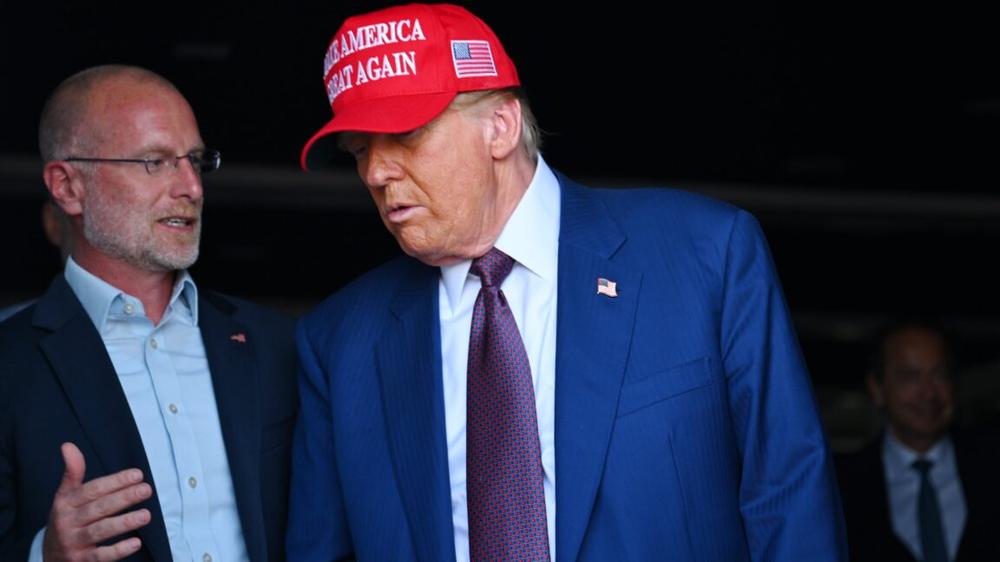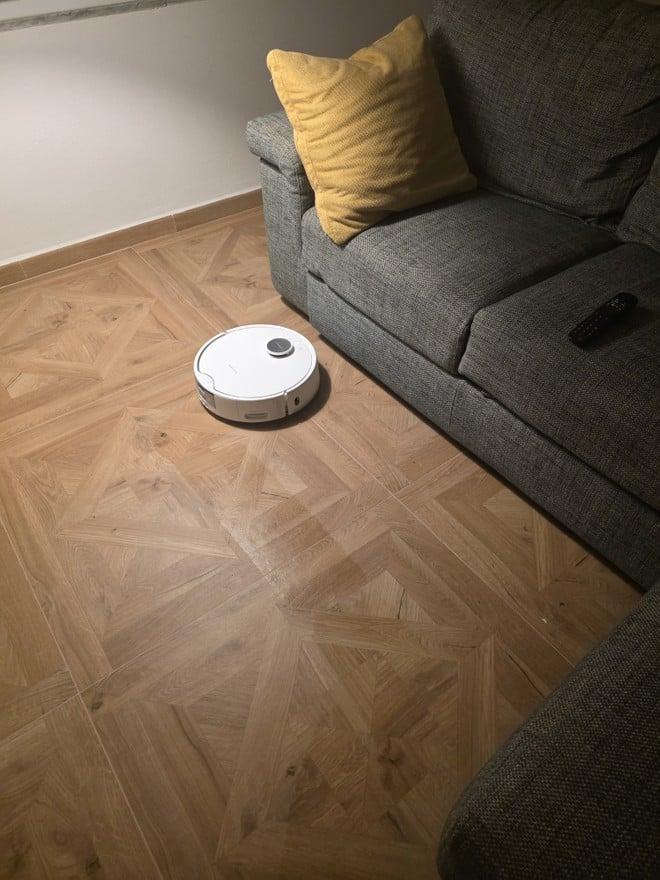After pressuring ABC to suspend Jimmy Kimmel, Federal Communications Commission Chairman Brendan Carr is setting his regulatory sights on ABC's The View and NBC late-night hosts Seth Meyers and Jimmy Fallon.
Carr appeared yesterday on the radio show hosted by Scott Jennings, who describes himself as "the last man standing athwart the liberal mob." Jennings asked Carr whether The View and other ABC programs violate FCC rules, and made a reference to President Trump calling on NBC to cancel Fallon and Meyers.
"A lot of people think there are other shows on ABC that maybe run afoul of this more often than Jimmy Kimmel," Jennings said. "I'm thinking specifically of The View, and President Trump himself has mentioned Jimmy Fallon and Seth Meyers at NBC. Do you have comments on those shows, and are they doing what Kimmel did Monday night, and is it even worse on those programs in your opinion?"
In response, Carr discussed the FCC's Equal Opportunities Rule, also known as the Equal Time Rule, and said the FCC could determine that those shows don't qualify for an exemption to the rule.
"When you look at these other TV shows, what's interesting is the FCC does have a rule called the Equal Opportunity Rule, which means, for instance, if you're in the run-up to an election and you have one partisan elected official on, you have to give equal time, equal opportunity, to the opposing partisan politician," Carr said.
At another point in the interview, Carr said broadcasters that object to FCC enforcement "can turn your license in to the FCC, we'll find something else to do with it."
Bona fide news exemption
Carr said the FCC hasn't previously enforced the rule on those shows because of an exemption for "bona fide news" programs. He said the FCC could determine the shows mentioned by Jennings aren't exempt:
There's an exception to that rule called the bona fide news exception, which means if you are a bona fide news program, you don't have to abide by the Equal Opportunity Rule. Over the years, the FCC has developed a body of case law on that that has suggested that most of these late night shows, other than SNL, are bona fide news programs. I would assume you could make the argument that The View is a bona fide news show but I'm not so sure about that, and I think it's worthwhile to have the FCC look into whether The View and some of these other programs you have still qualify as bona fide news programs and [are] therefore exempt from the Equal Opportunity regime that Congress has put in place.
The Equal Opportunity Rule applies to radio and TV broadcast stations with FCC licenses to use the airwaves. An FCC fact sheet explains that stations giving time to one candidate must provide "comparable time and placement to opposing candidates" upon request. The onus is on candidates to request air time—"the station is not required to seek out opposing legally qualified candidates and offer them Equal Opportunities," the fact sheet says.
The exemption mentioned by Carr means that "appearances by legally qualified candidates on bona fide newscasts, interview programs, certain types of news documentaries, and during on-the-spot coverage of bona fide news events are exempt from Equal Opportunities," the fact sheet says.
In 1994, the FCC said that "Congress removed the inhibiting effect of the equal opportunities obligation upon bona fide news programming to encourage increased news coverage of political campaign activity." Congress gave the FCC leeway to interpret the scope of bona fide news exemptions.
Referring to its 1988 ruling on Entertainment Tonight and Entertainment This Week, the FCC said it found that "the principal consideration should be 'whether the program reports news of some area of current events... in a manner similar to more traditional newscasts.' The Commission has thus declined to evaluate the relative quality or significance of the topics and stories selected for newscast coverage, relying instead on the broadcaster's good faith news judgment."
Carr’s allegations
Carr alleged in November 2024 that NBC putting Kamala Harris on Saturday Night Live before the election was "a clear and blatant effort to evade the FCC's Equal Time rule." In fact, NBC gave Trump two free 60-second messages in order to comply with the rule.
Carr didn't cite any specific incidents on The View or late-night shows that would violate the FCC rule. The View has addressed its attempts to get Trump on the show, however. Executive Producer Brian Teta told Deadline in April 2024, "We've invited Trump to join us at the table for both 2016 and 2020 elections, and he declined, and at a certain point, we stopped asking. So I don't anticipate that changing. I think he's pretty familiar with how the co-hosts feel about him and doesn't see himself coming here."
The Kimmel controversy erupted over a monologue in which he said, "We hit some new lows over the weekend with the MAGA gang desperately trying to characterize this kid who murdered Charlie Kirk as anything other than one of them and with everything they can to score political points from it."
With accused murderer Tyler Robinson being described as having liberal views, Carr and other conservatives alleged that Kimmel misled viewers. Carr appeared on right-wing commentator Benny Johnson's podcast on Wednesday and said, "We can do this the easy way or the hard way. These companies can find ways to change conduct, to take action, frankly on Kimmel, or there's going to be additional work for the FCC ahead."
Nexstar and Sinclair, two major owners of TV stations, both urged ABC to take action against Kimmel and said their stations would not air his show. The pressure from broadcasters is happening at a time when both Nexstar and ABC owner Disney are seeking Trump administration approval for mergers.
Democrats accuse Carr of hypocrisy on First Amendment
Anna Gomez, the only Democrat on the Republican-majority FCC, said yesterday that Carr overstepped his authority, but "billion-dollar companies with pending business before the agency" are "vulnerable to pressure to bend to the government's ideological demands."
Democratic lawmakers criticized Carr and proposed investigations into the chair for abuse of authority. "It is not simply unacceptable for the FCC chairman to threaten a media organization because he does not like the content of its programming—it violates the First Amendment that you claim to champion," Senate Democrats wrote in a letter to Carr. "The FCC's role in overseeing the public airwaves does not give it the power to act as a roving press censor, targeting broadcasters based on their political commentary. But under your leadership, the FCC is being weaponized to do precisely that."
Democrats pointed to some of Carr's previous statements in which he decried government censorship. During his 2023 re-confirmation proceedings, Senate Democrats asked Carr about social media posts in which he accused Democrats of engaging in censorship like "what you'd see in the Soviet Union."
"I posted those tweets in the context of expressing my view on the First Amendment that debate on matters of public interest should be robust, uninhibited, and wide open," Carr wrote in his response to Democratic senators. "I believe that the best remedy to speech that someone does not like or finds objectionable is more speech. I posted them because I believe that a newsroom's decision about what stories to cover and how to frame them should, consistent with the First Amendment, be beyond the reach of any government official."
Years earlier, in 2019, Carr posted a tweet that said, "Should the government censor speech it doesn't like? Of course not. The FCC does not have a roving mandate to police speech in the name of the 'public interest.'"
Carr to broadcasters: Give your licenses back to FCC
Carr said this week he's only addressing licensed broadcasters, which have public-interest obligations, as opposed to cable and streaming services that don't need FCC licenses. Network programming itself doesn't need an FCC license, but the TV stations that carry network shows require licenses.
Carr tried to cast Kimmel's suspension as the result of organic pressure from licensed broadcasters, rather than FCC coercion. "There's no untoward coercion happening here," Carr told Jennings. "The market was intended to function this way, where local TV stations get to push back."
But TV station owners did so in exactly the way that Carr urged them to. "The individual licensed stations that are taking their content, it's time for them to step up and say this garbage isn't something that we think serves the needs of our local communities," Carr said on Johnson's podcast. Carr said that Kimmel's monologue "appears to be some of the sickest conduct possible."
On the Jennings show, Carr alleged that Democrats in the previous administration implemented "a two-tiered weaponized system of justice," and that his FCC is instead giving everyone "a fair shake and even-handed treatment."
Carr has repeatedly threatened broadcasters with the FCC's rarely enforced news distortion policy. As we've explained, the FCC technically has no rule or regulation against news distortion, which is why it is called a policy and not a rule. But on Jennings' show, he described it as a rule.
"We do have those rules at the FCC: If you engage in news distortion, we can take action," Carr said.
As we've written several times, it is difficult legally for the FCC to revoke broadcast licenses. But it isn't difficult for Carr to exert pressure on networks and broadcasters through public statements. Carr suggested yesterday that broadcasters turn in their licenses if they don't like his approach to enforcement.
"If you're a broadcaster and you don't like being held accountable for the first time in a long time through the public interest standard, that's fine. You can turn your license in to the FCC, we'll find something else to do with it," Carr said. "Or you can go to Congress and say, 'I don't want the FCC having public interest obligations on broadcasters anymore, I want broadcasters to be like cable, to be like a streaming service.' That's fine too. But as long as that's the system that Congress has created, we're going to enforce it."

 Recensione SwitchBot S20: il rullo è ora alla portata di tanti!
Recensione SwitchBot S20: il rullo è ora alla portata di tanti!